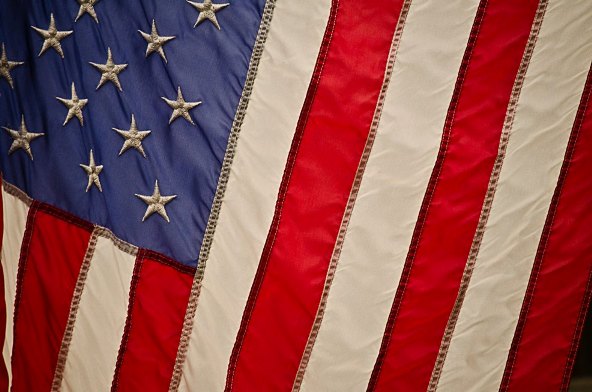Five Pillars on which the American Republic was Founded
The judge said it was the first time he had met someone who did not acknowledge the existence of God. He went on to say that by denying the existence of God, the witness had “destroyed all the confidence of the court in what he was about to say.”
This event was recorded by the French sociologist, Alexis de Tocqueville, and occurred during his visit to America in 1831. Tocqueville said the incident was merely noted in the newspaper without further comment.
It is no accident that monuments in Washington D.C. abound with references to God and verses of Scripture. This pervasive belief in God by America’s Founders is also reflected in the statement “In God We Trust” being emblazoned on all federal currency. It is reflected in the phrase “one nation under God” being part of the Pledge of Allegiance that is repeated by every new citizen, and once was repeated every morning by school children across America.
Yes, belief in the all-knowing, all-powerful God of the Bible—the Moral Governor of the Universe—was considered a necessity for a prosperous and stable nation by virtually all early Americans.

Image: Kevin Morris
Pillar #2
Belief in the Bible as the Source of Ultimate Truth.
When George Washington placed his hand on a Bible to take the oath of office it was no mere formality, but a declaration that the Bible would be the ultimate source of wisdom and guidance for his administration. He also once said, “It is impossible to rightly govern the world without God and the Bible” (Hyatt, Pilgrims and Patriots, 137).
A ten-year project instituted to discover where the Founders got their ideas for America’s founding documents found that by far the single most cited authority in their writings was the Bible. They were people of the Book and consciously and unconsciously used it as the standard for measuring all other writings both ancient and modern.
From the beginning, the Bible had been incorporated into all the learning of the schools in Colonial America. For example, The New England Primer coupled Bible verses and church doctrine with the learning of the ABCs. The letter “A,” for example, was associated “Adam” and the statement, “In Adam’s fall, we sinned all.” First graders in early America learned to read with the Bible!
Knowing how the Founders esteemed and reverenced the Bible, it comes as no surprise that The First Continental Congress was opened with Bible reading and prayer. It is also no surprise that when Benjamin Franklin called the Constitutional Convention to Prayer, he quoted from both the Psalms and the Gospels (Hyatt, Pilgrims and Patriots, 143-44).
While he was at The College of New Jersey, now Princeton University, James Madison translated the Bible from Hebrew and Greek into English. Dr. D. James Kennedy and Jerry Newcombe were right when they said, “Madison’s worldview was one shaped by the Bible more than any other source” (Hyatt, Pilgrims and Patriots, 146).
Category: Living the Faith, Summer 2018


